TL;DR:
- Paper Sizes: A0-A8, Arch A-E1, ANSI. Wider rolls for bulk printing large formats.
- Paper Weight: Heavier paper (90-110 GSM) for quality, lighter (75-90 GSM) for everyday use.
- Paper Types: Engineering bond, inkjet bond, photo paper, film, vinyl.
- TAVCO Advantage: High-quality paper, expert advice, custom solutions, sustainable options.
Large-format printing technologies have evolved for AEC professionals, and an increased need to print smaller, half-sized prints has grown in the past few years.
So, selecting a paper size for your inkjet printer or LED toner plotter demands a nuanced understanding of the various plotter paper dimensions and their impact on your project's presentation and readability.
The wide range of paper size varies significantly depending on factors such as the printer's make and model, the nature of the project, and the specific requirements of the AEC industry.
Quick links to popular plotting paper rolls
Engineering bond
Inkjet check plot bond
Photo paper
Film and Vellum
Vinyl and banner material
Take note of these essential specifications related to wide-format paper and related print media.

What are the Dimensions of a Printer Paper
Plotter paper comes in various sizes, each tailored to different project needs. Standard roll widths include 11, 17, 24, 36, and 42 inches. When selecting a width, consider the final print orientation. For instance, a 36-inch roll can be more efficient than a 24-inch one for printing standard 24x36-inch architectural drawings in bulk. Roll lengths range from 150 to 650 feet, with longer rolls reducing the need for frequent changes, thus maintaining workflow efficiency.
Dimensions of Different Industry Standard Paper Sizes
|
Paper Weight and Thickness:
Paper weight, expressed in pounds (lb or #) and GSM (grams per square meter), is crucial for determining paper quality and suitability. Heavier papers (90 to 110 GSM or 24# to 28#) offer durability and better ink absorption, ideal for high-quality client presentations.
Lighter papers (75 to 90 GSM or 20# to 24#) are more suitable for everyday printing tasks like drafts and internal documents. The thickness, measured in mils, varies based on the application, with standard CAD materials typically under four mils, suitable for older inkjet printers.
Modern printers can handle a broader range of materials, from thin-bond papers to thicker exotic and more graphics-oriented media like canvas or vinyl.
Core Diameter Considerations:
The core diameter of plotter paper varies, typically between 2 and 3 inches. While 2-inch cores are standard for inkjet printers, 3-inch cores are gaining popularity due to reduced paper curling. Modern printers like the HP DesignJet XL-3800 accommodate 3-inch cores, so knowing your machine's specifications is essential.
Printer Paper and Other Media Types
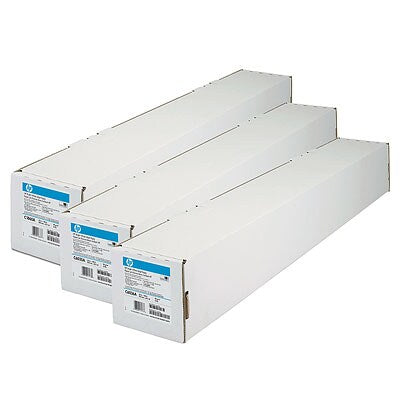
Engineering Bond
A staple in technical environments for LED toner plotters, this plain paper offers an excellent visual contrast for readability in detailed drawings.
Inkjet check plot bond
Designed for inkjet plotters, this paper works well with dye- and pigment-based inks, is suitable for high-quality prints, and is environmentally friendly.
Photo paper
Today’s photo papers meet the demands for high-quality photorealistic reproduction. The ultra-white base with microporous coating means your prints will be instantly dry and water resistant; while the thinner base allows you to save money and still provide photographic output. Universal compatibility is optimized for today’s wide gamut printers.
Film and Vellum
Mylar film and vellum are used in various applications. Engineering films have been used for decades for archival purposes, while other films have been used for overlays or backlit situations.
Other films can be used for trade show and point-of-purchase graphics that will be mounted on pop-up retractable display systems. Vellum is not as widely used as it once was, but it still finds uses in situations where a transparent media is needed.
Film and banner material
Displays need a wow factor. Smooth opaque aqueous vinyl banner is a tear-resistant polyester fabric embedded between two white vinyl layers and a non-glare finish.
It has excellent light-blocking capabilities and is inkjet-coated to give excellent overall print quality. It can be sewn or grommeted for finishing as well. Additionally, Tyvek Banner and Polypropylene are also great choices for printing durable banners and posters.
Choosing the Right Paper for Your Project:
Selecting the right paper involves more than technical specifications; it's about ensuring your prints effectively convey their intended message. Engineering bond is ideal for technical drawings, while photo paper suits high-quality renderings and marketing materials. Heavier paper weights and specialized media like vinyl can enhance the final output's impact for presentations or displays.
Partnering with TAVCO for Your Printing Needs:
Partnering with a knowledgeable supplier like TAVCO in the rapidly evolving AEC industry can be invaluable. We offer a range of high-quality large-format plotters and 3D scanners backed by expert advice on the best printing materials for your projects. Our specialists can help you select the right plotter paper, balancing print quality, durability, and environmental considerations.
The TAVCO Advantage:
- Quality Assurance: We provide high-grade plotter paper for crisp, clear prints.
- Customized Solutions: Tailored advice on paper types and sizes for your specific project needs.
- Seamless Supply Chain: Reliable availability and quick delivery to keep your projects on schedule.
- Sustainable Options: Environmentally friendly paper choices to align with your green initiatives.
Wrapping it up about printer paper
Choosing the right plotter paper is critical in the AEC industry. Understanding the various paper sizes, weights, and types is essential for producing high-quality prints that stand out.
At TAVCO, we're more than just a supplier; we're your partner in navigating the complexities of large-format printing. Contact a TAVCO specialist today to explore our range of products and find the perfect printing solutions for your AEC projects.
Ready to elevate your prints with the perfect plotter paper?
Visit our online store today and explore our extensive selection of high-quality plotter paper tailored to meet the specific needs of AEC professionals.
We have the ideal paper for every project, from engineering bonds for detailed drawings to photo paper for photorealistic renderings.
>> Shop now for Printer Paper for Plotters >>

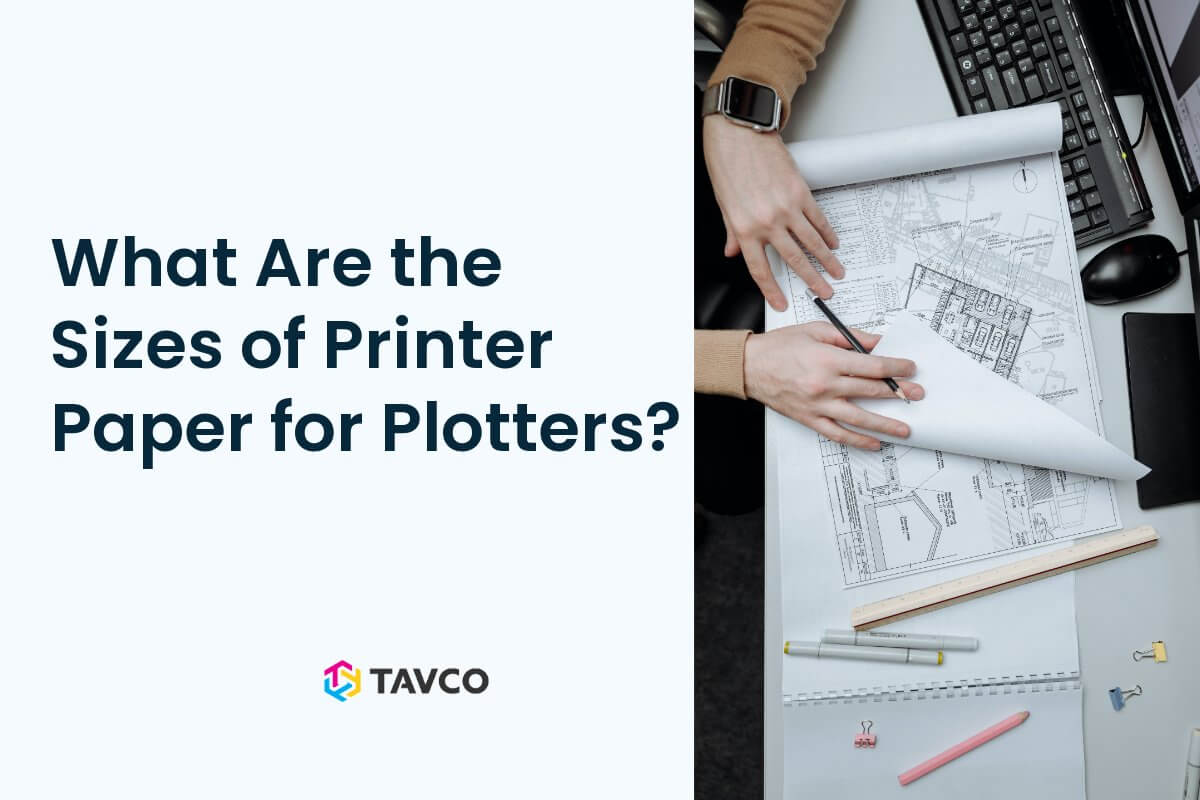
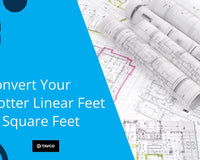
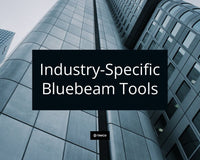
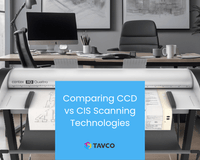
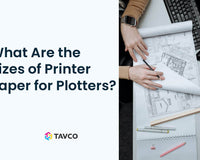

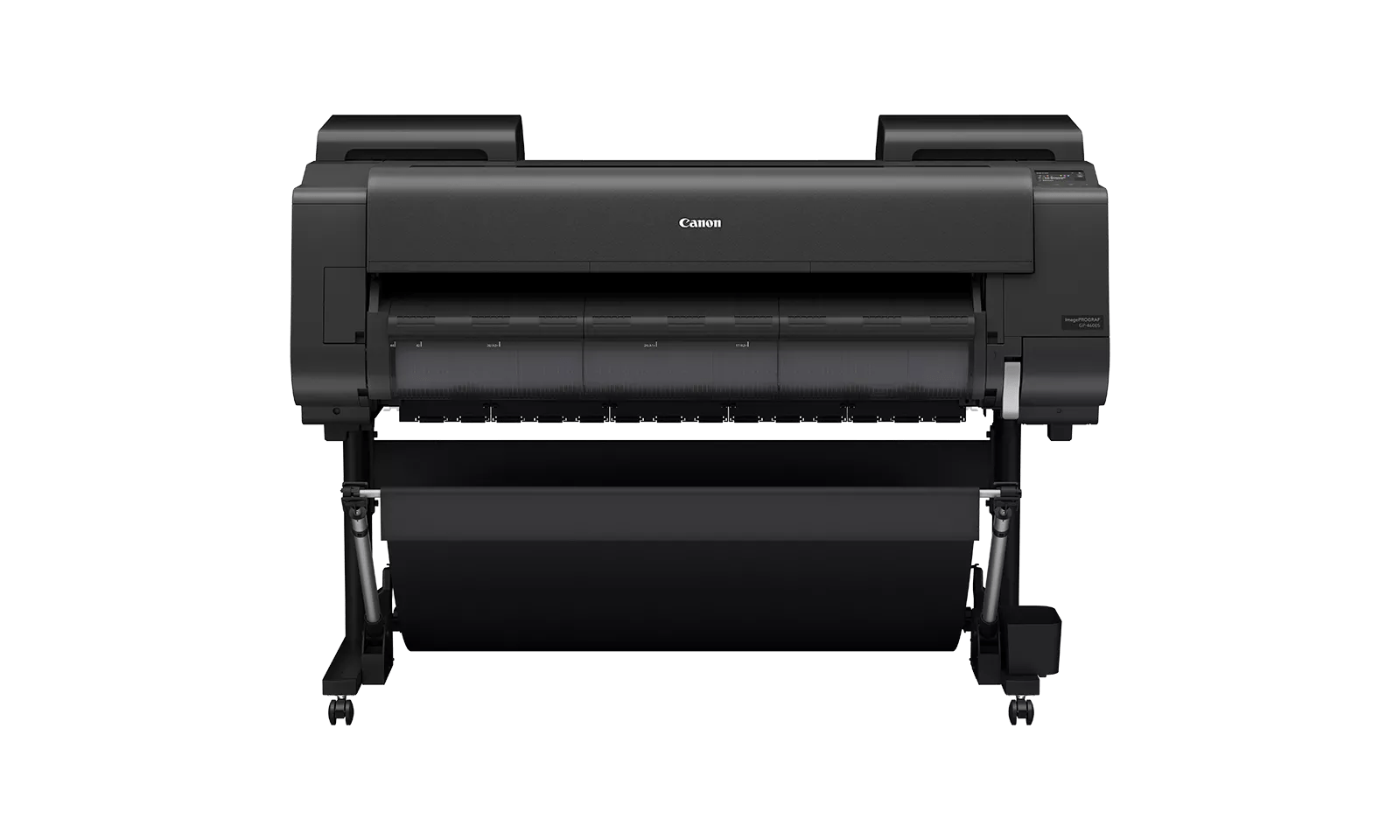
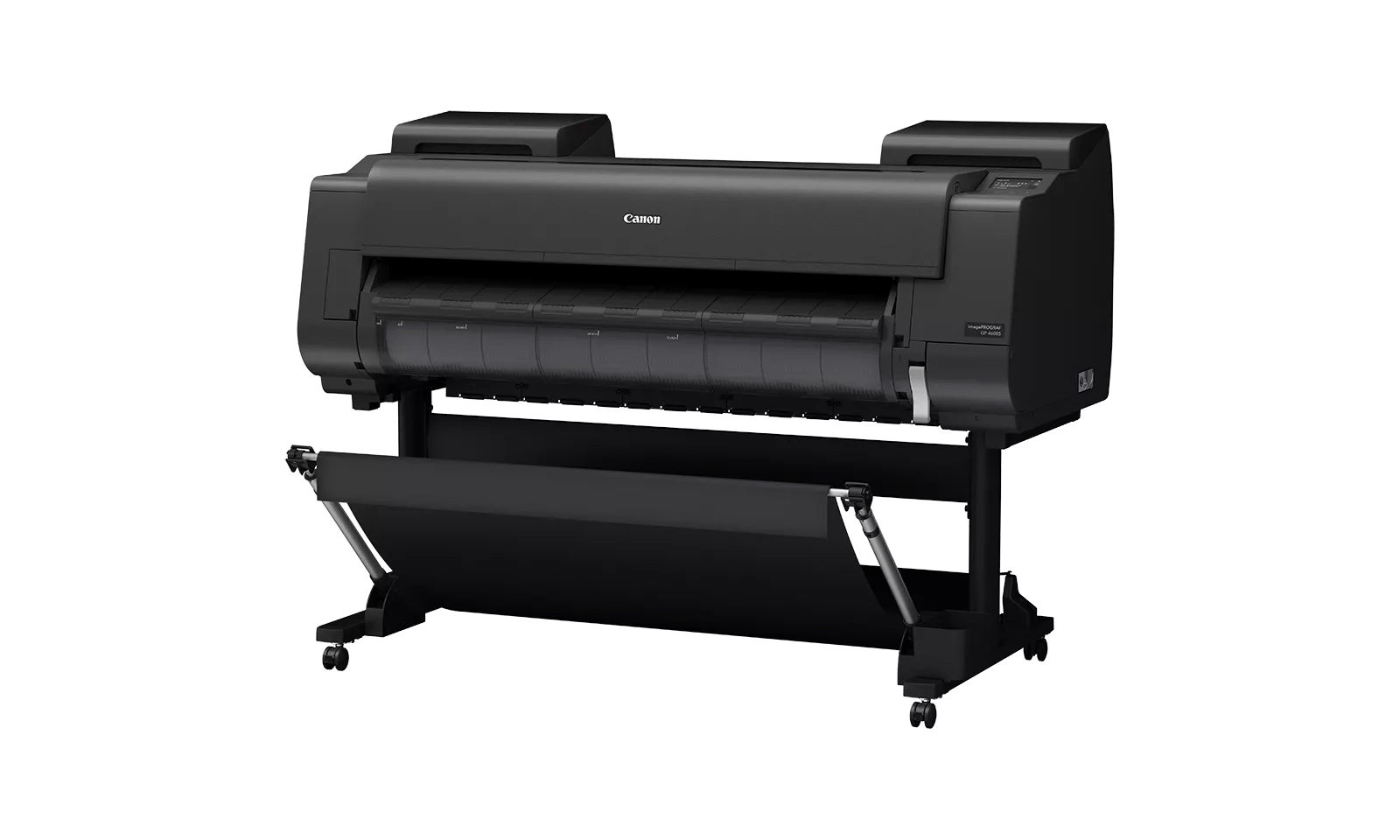
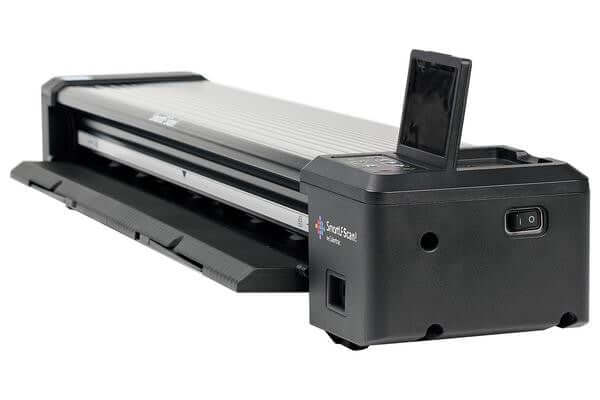
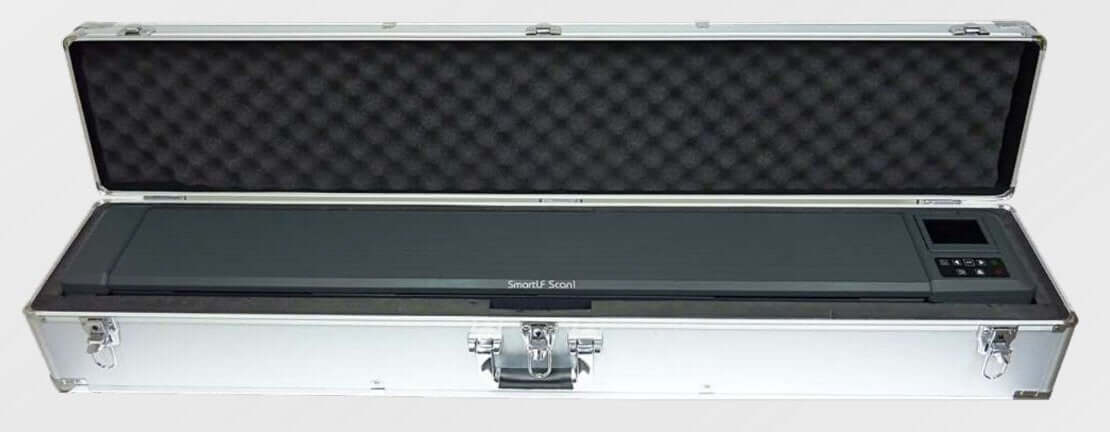
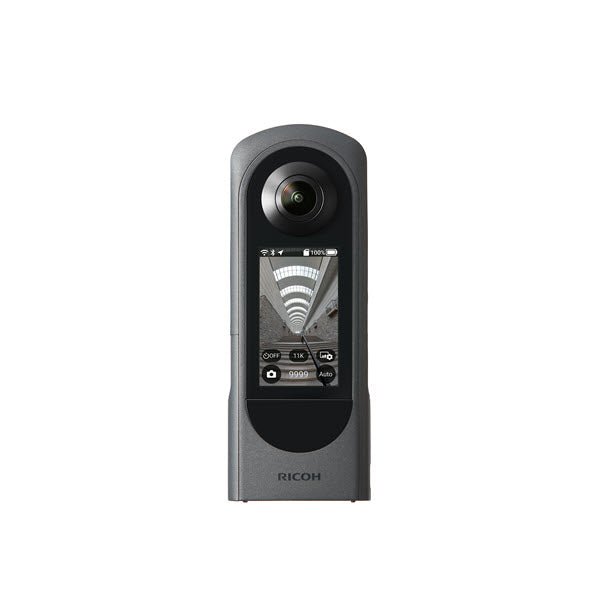
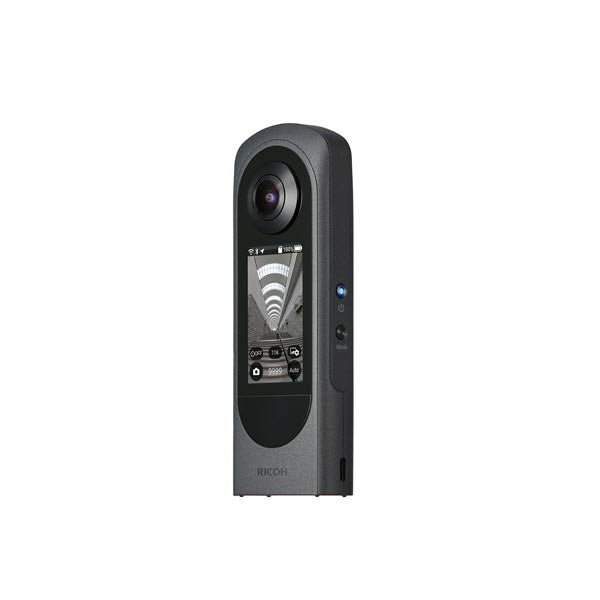
2 comments
TAIBA printers
Canan pottler printer
Jessie Holloway
Thanks so much for the breakdown on paper roll sizes and characteristics. My brother just got an inkjet printer for his business. Now he’s looking for plotting paper and other materials to help him get it fully set up. https://getpaper.com/chicago